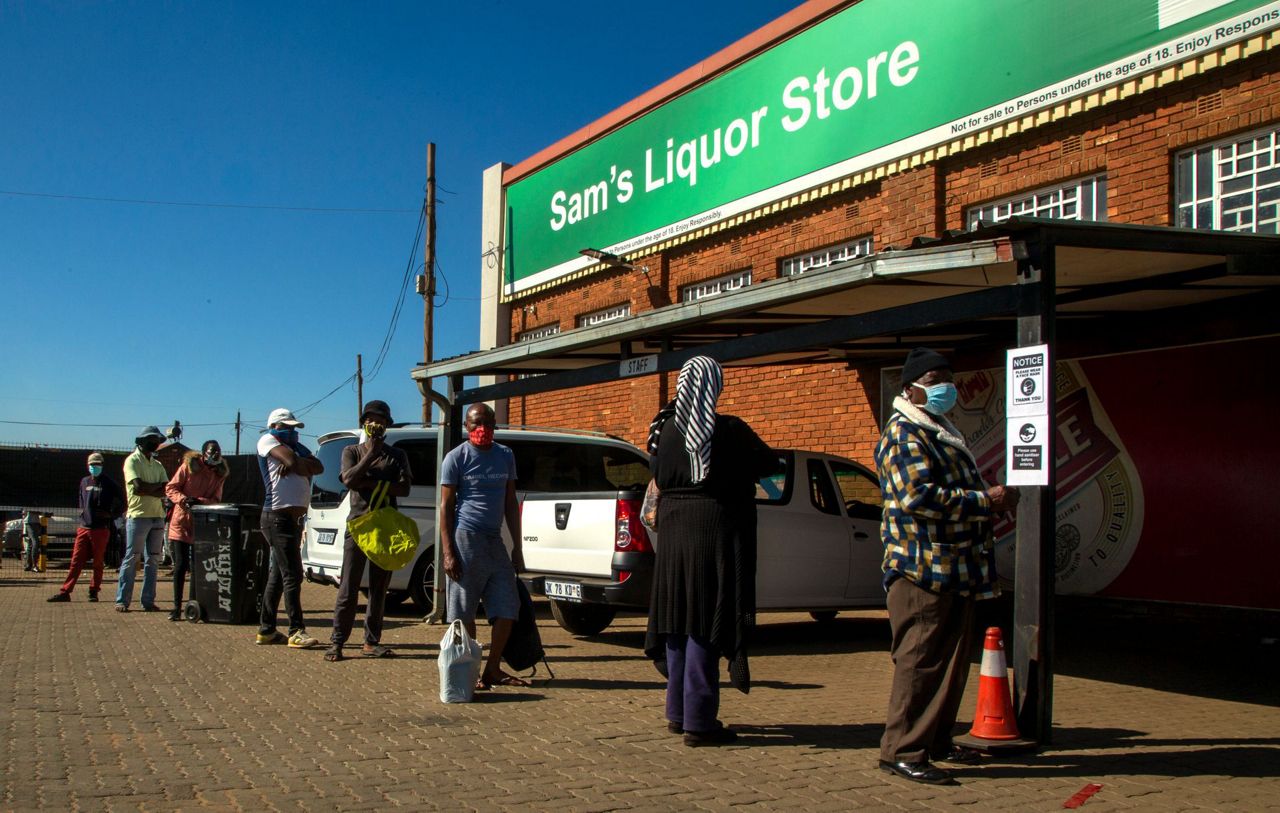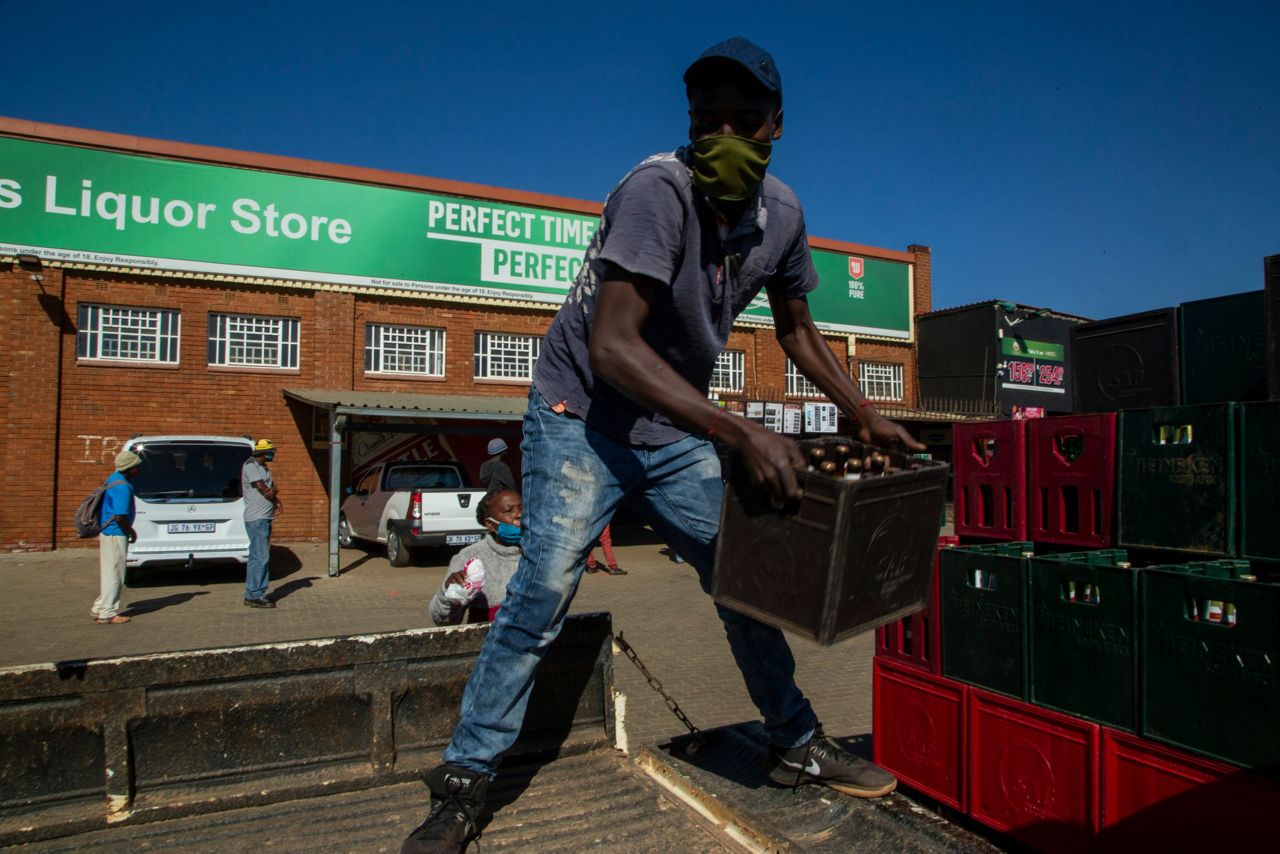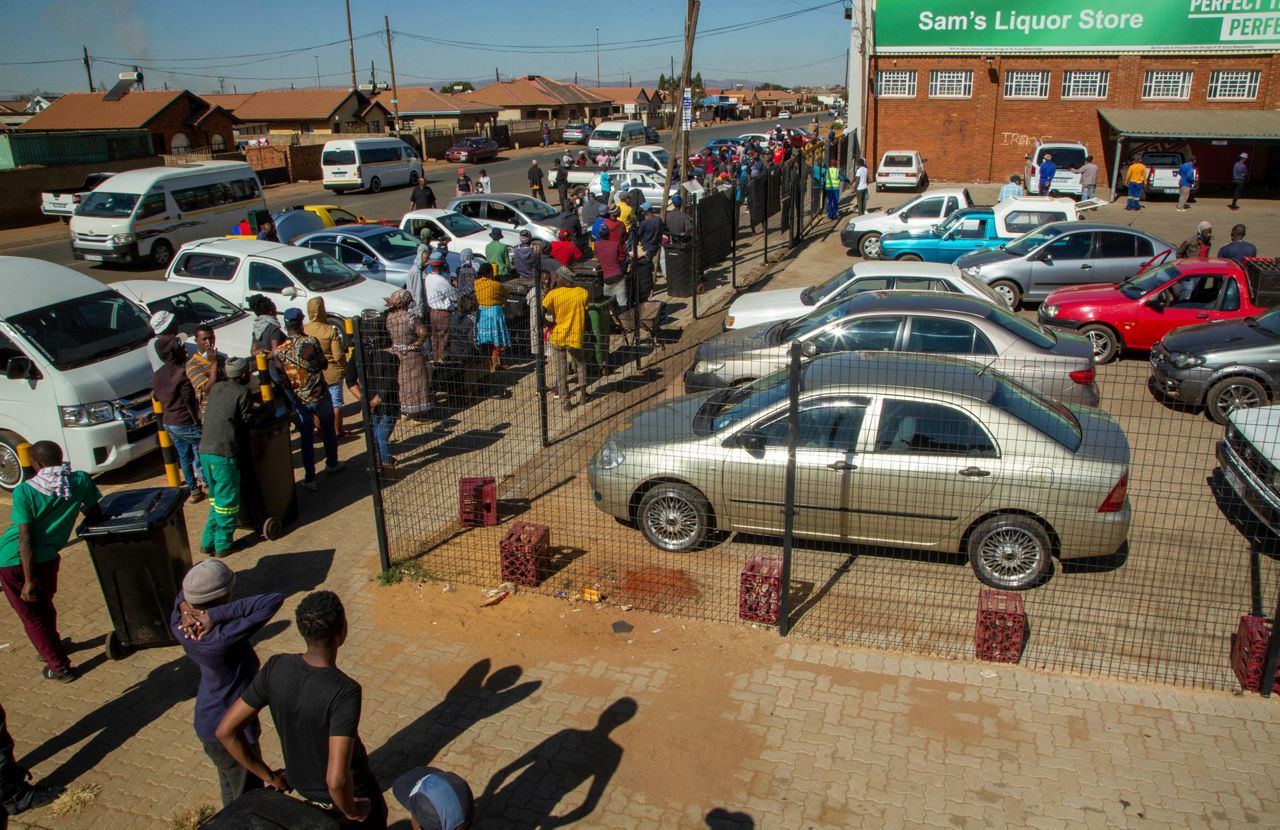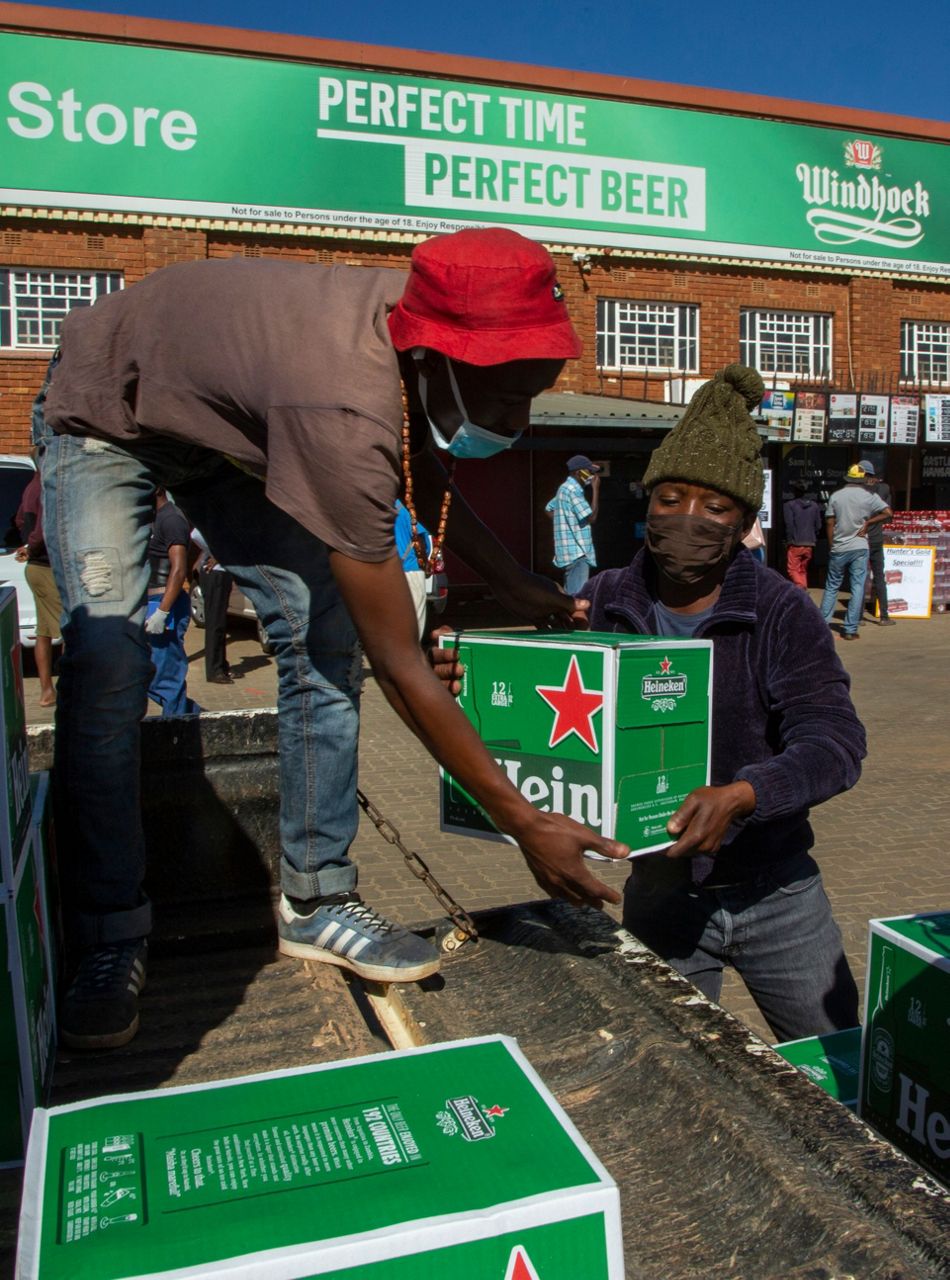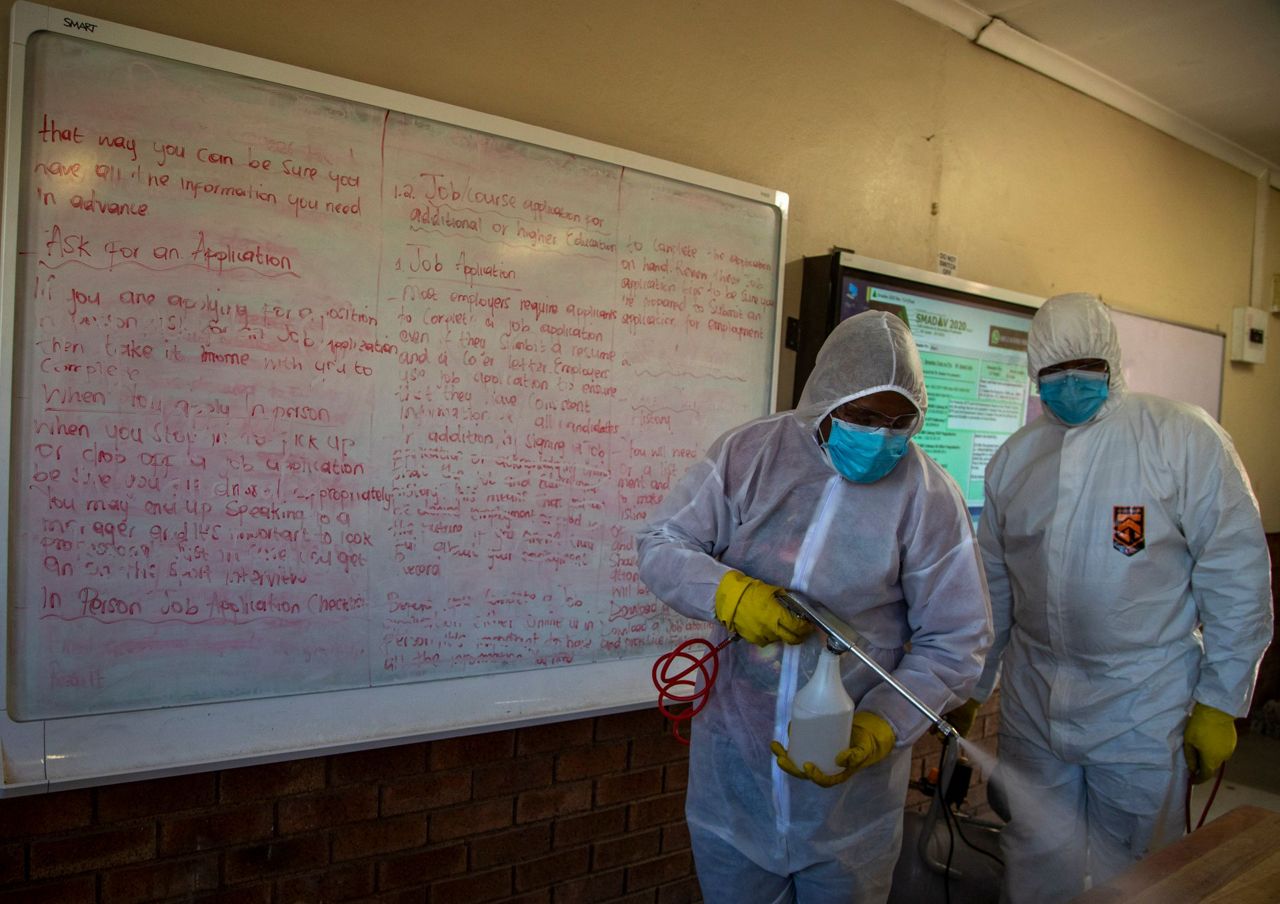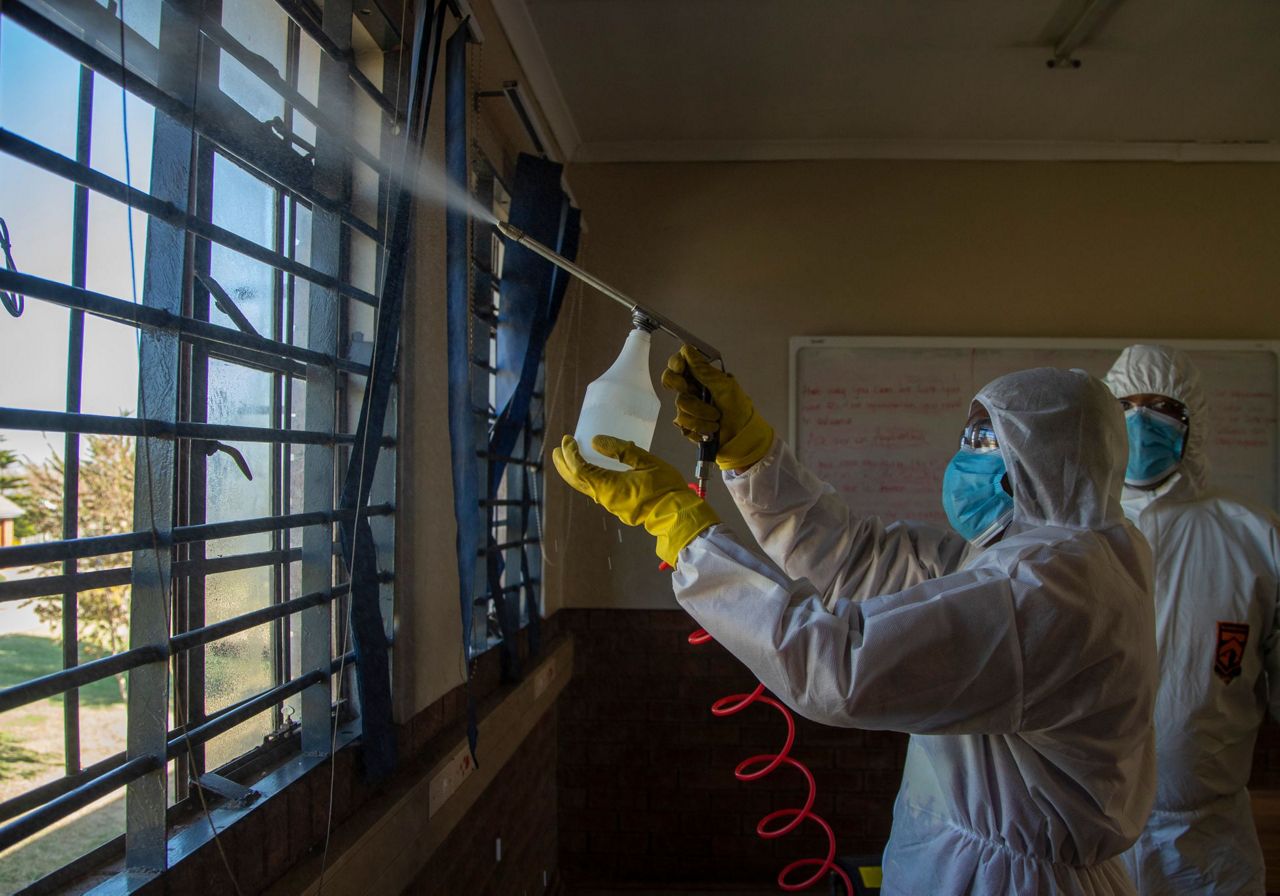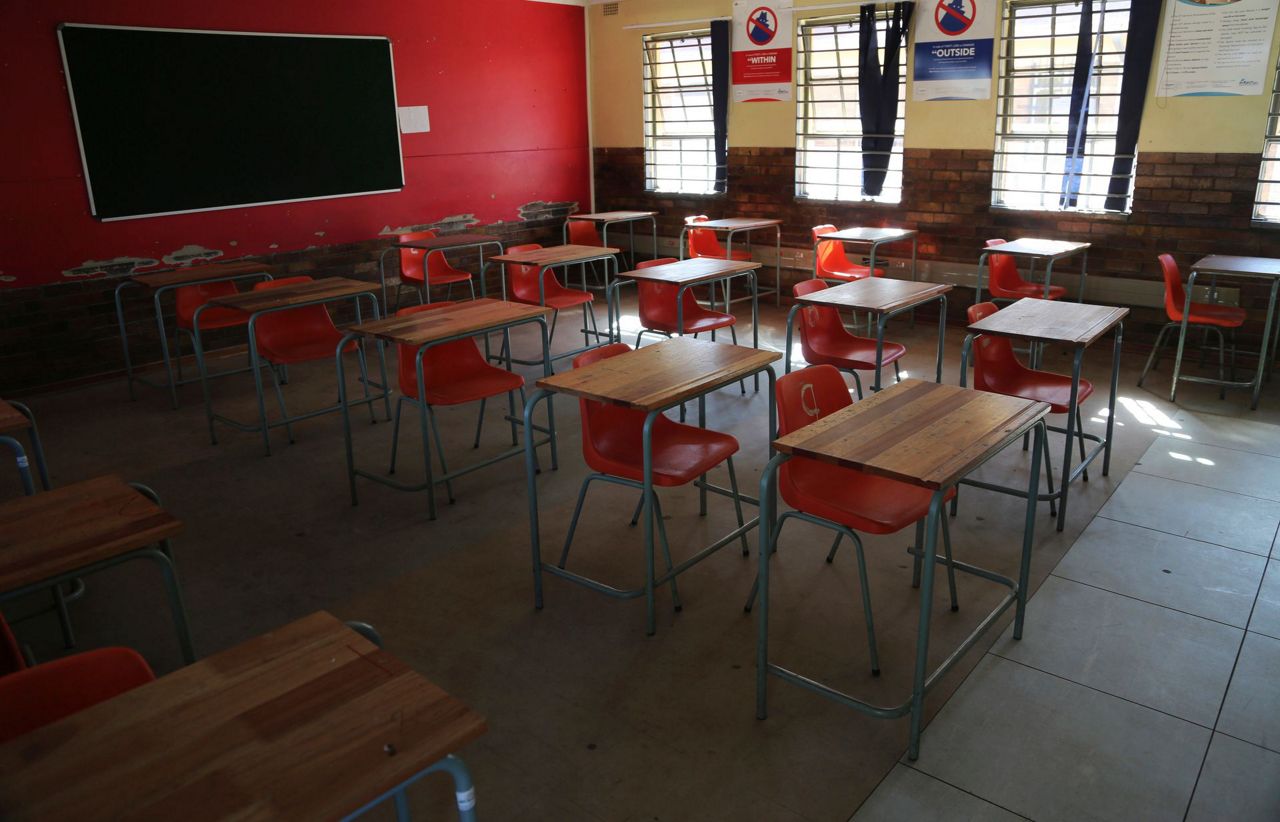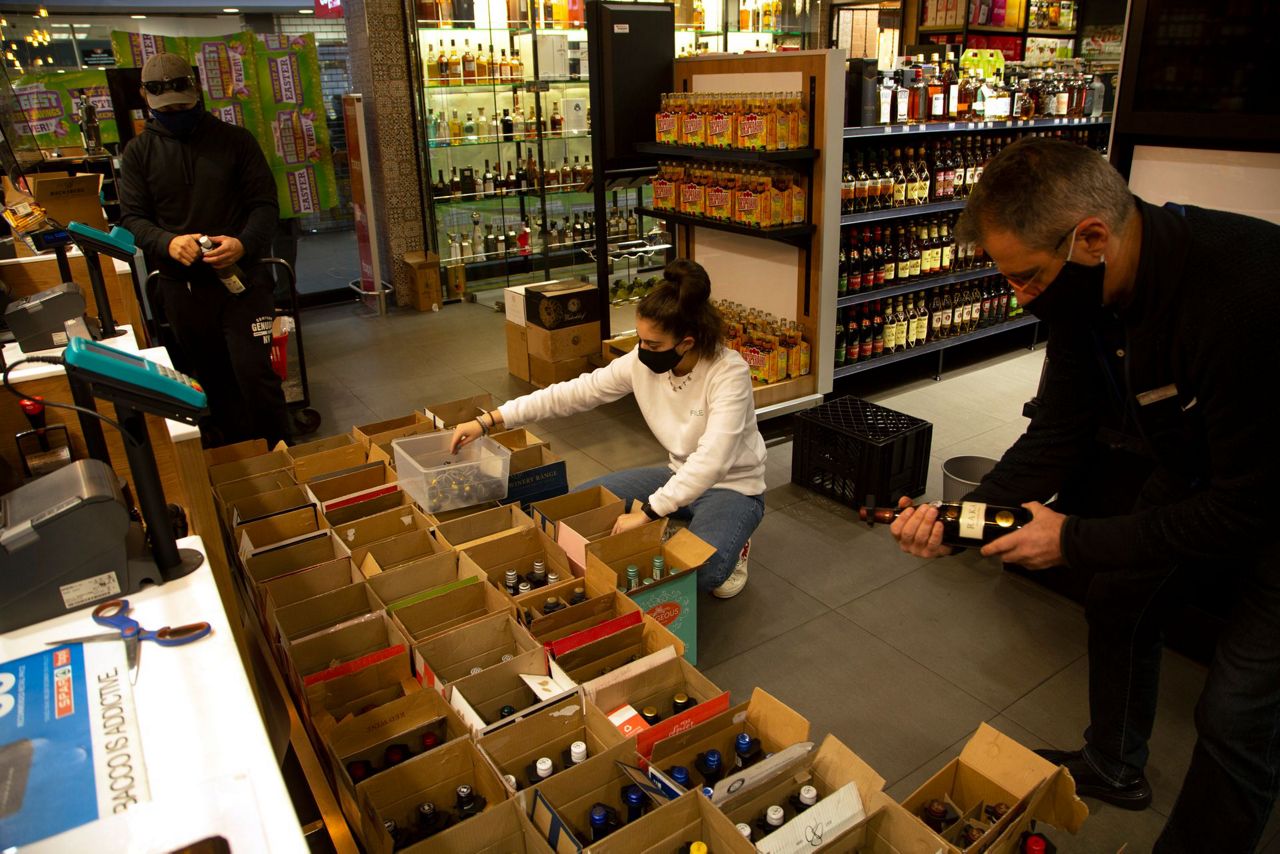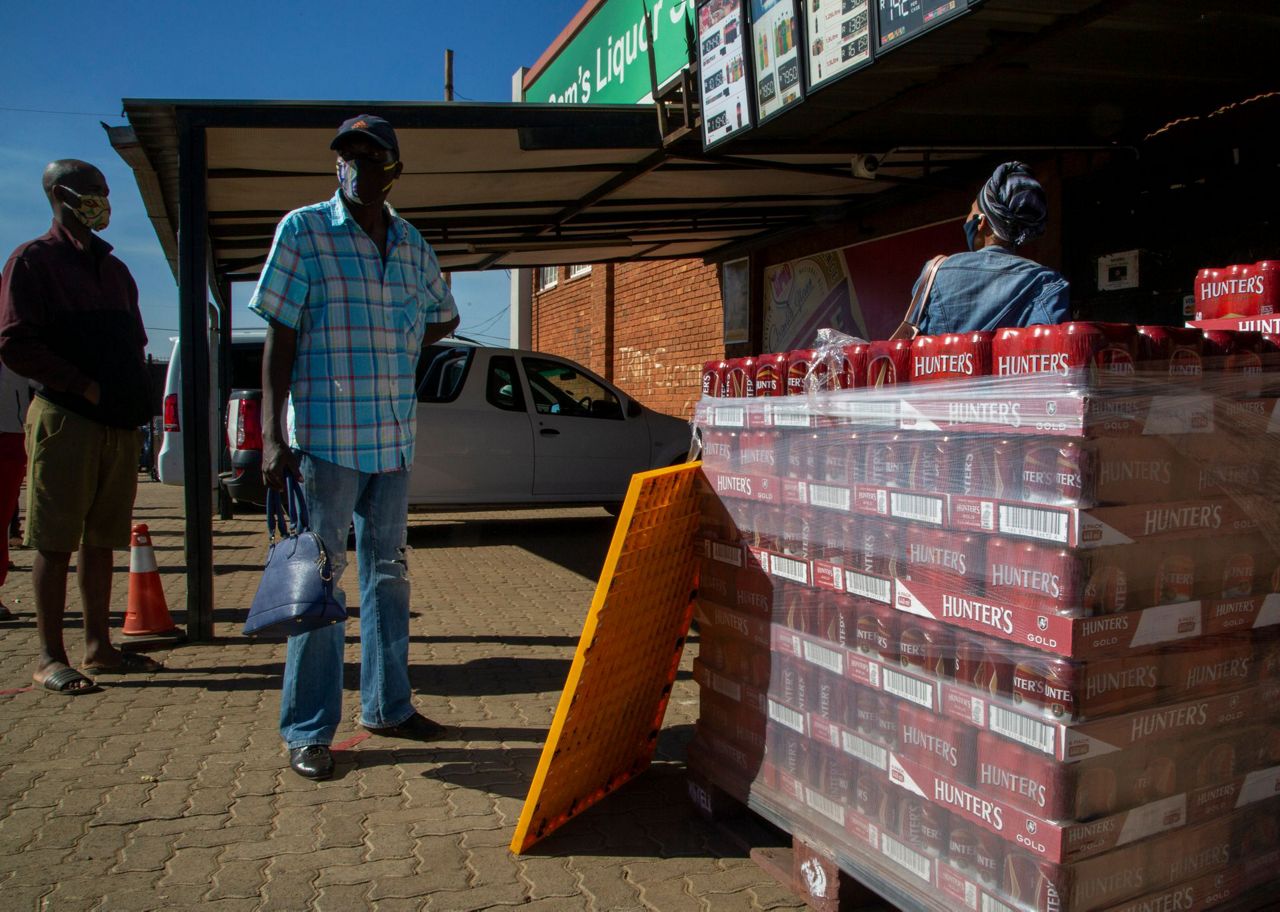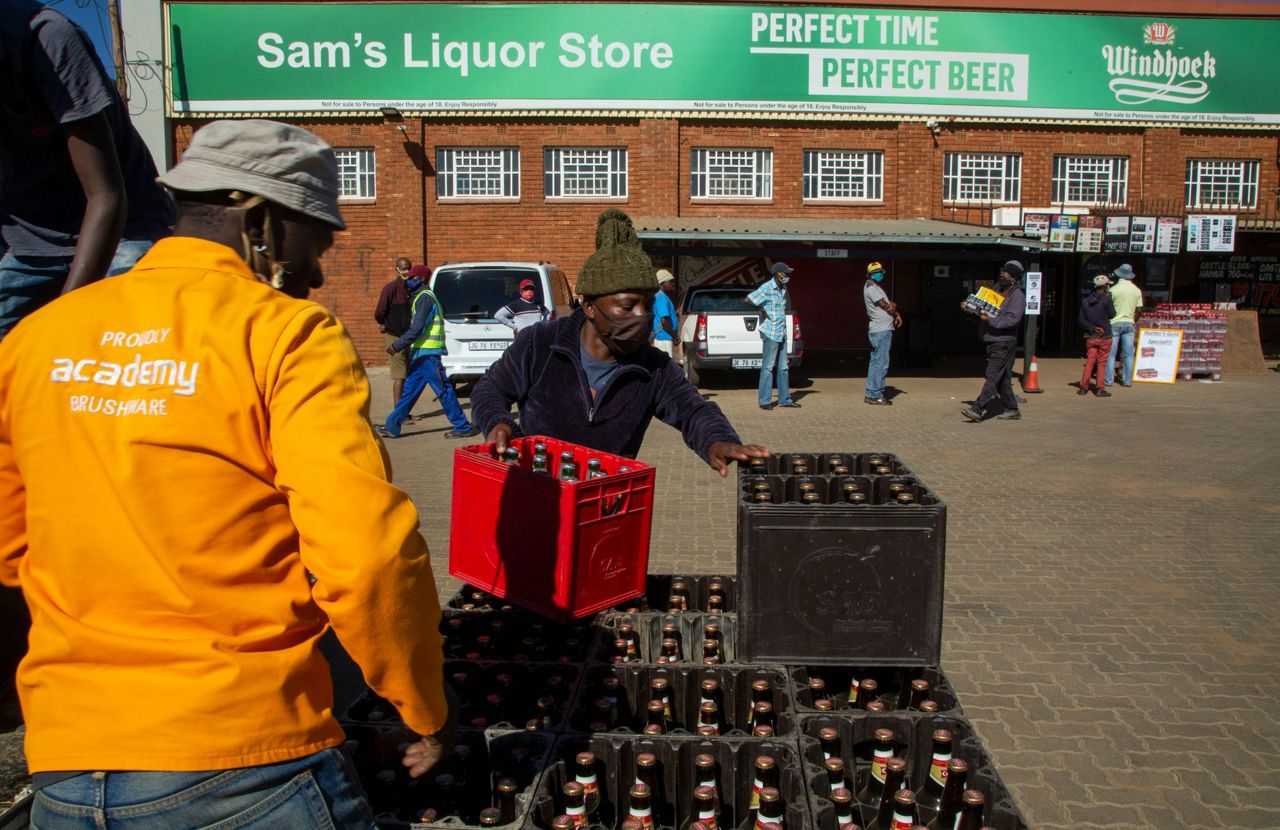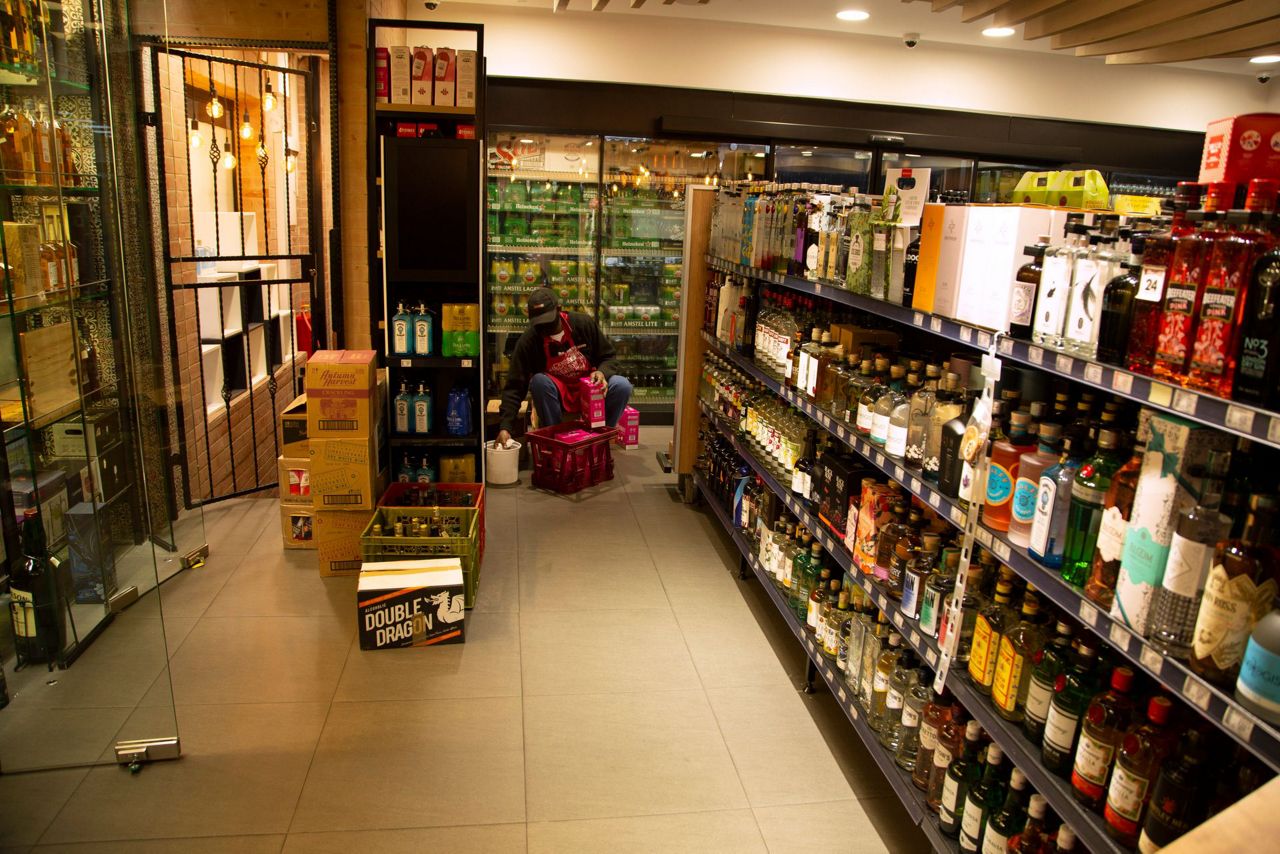CAPE TOWN, South Africa (AP) — Many South Africans spent their Monday lining up outside liquor stores and celebrated with cheers as alcohol sales were allowed again after a two-month ban because of the coronavirus outbreak.
“It’s been a long two months,” said Tony van Schalkwyk, who got to one liquor shop an hour before it was due to open. Others lined up more than four hours before sales opened at 9 a.m. The lines of people — wearing masks and keeping a social distance — snaked through store aisles, out the doors, onto sidewalks and into parking lots.
Alcohol sales had been prohibited since March 26, a deeply unpopular element of South Africa's strict lockdown but one which the government said was necessary to ease pressure on emergency medical services as they brace to deal with the virus. Emergency rooms reported a steep decline in alcohol-related traffic accidents and brawls. Cigarette sales remain banned.
South Africa — with Africa's most developed economy and its highest number of confirmed cases of COVID-19 — relaxed its lockdown despite the fact that cases are still rising.
While the sales of alcohol resumed smoothly, the easing of the lockdown created complications in other areas: The scheduled return to school for children in the last year of elementary school and final year of high school was delayed across most of the country, and there was debate about how churches could safely resume services after also being allowed to do so.
Places of worship were allowed to open with limits on the number of people in congregations, yet many religious groups said they would refuse the opportunity. They raised concerns over the risk of allowing people to gather in an enclosed building in the midst of the outbreak.
Paradoxically, the relaxation of regulations comes as South Africa experiences a significant rise in COVID-19 cases, lately by more than 1,000 a day. There are over 34,000 cases in total and more than 700 people have died. More than 22,000 of the confirmed cases are in the Western Cape province, where the city of Cape Town is the epicenter of the outbreak in Africa. The South African government warns that the number of infections will continue to increase, with a peak only expected in August or September.
Still, the relaxation of the alcohol ban in a time of strain came as a relief to many, who chose to restock their liquor cabinets rather than go straight to work on the day much of the country’s economy also reopened and most of its workforce were returning to their jobs.
In the poor township of Macassar, near Cape Town, people left home at 4.30 a.m., residents said, to secure places in lines. Some walked with plastic crates to carry bottles of beer and wine back home. The cheers rose in a Johannesburg supermarket when screens locking off wine racks were removed. Shelves of popular brands of alcohol were emptied in two hours at one shop.
Alcohol is only allowed to be sold from Monday to Thursday between 9 a.m. and 5 p.m. under the new relaxed measures. There were warnings against stockpiling alcohol but some customers went to more than one store to restock, aware that the government has cautioned that some areas could return to stricter lockdown measures if their rates of infection increase dramatically. That could mean the contentious alcohol ban is re-enforced in major cities like Johannesburg and Cape Town.
For schools, the government postponed the planned opening of the two grades for another week so that under-prepared schools could make preparations like issuing protective clothing to teachers. The date for the return of schools nationwide is now June 8.
But some schools went ahead and opened in Cape Town after the provincial education department there said they were ready. At one high school, pupils lined up to have their temperatures taken with a thermal device and answer questions before they could go to lessons, part of regulations that will be enforced at all schools.
While the opening of places of worship was welcomed by some, including an opposition party, the African Christian Democratic Party, others said it was too dangerous and they would stay closed. To mitigate the risk, the government ordered that a maximum of 50 people would be allowed in congregations and that congregants must stay 1.5 meters apart at all times and wash hands.
One group, the Jesuit Institute of South Africa, said there was still potential for the virus to spread at services and called the government's decision to allow churches to open a ”sudden, seemingly rushed move.”
The Jesuits also questioned how churches, mosques, synagogues and temples could be expected to turn people away if more than 50 wanted to attend a service.
“This is an almost impossible decision to make for religious leaders,” they said. "Will police check places of worship and break up gatherings of more than 50 persons?"
___
AP journalists Jerome Delay and Andrew Meldrum in Johannesburg contributed.
Copyright 2020 The Associated Press. All rights reserved. This material may not be published, broadcast, rewritten or redistributed without permission.



